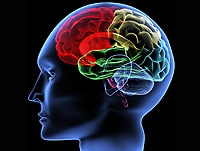Experts discuss what physicians and patients need to know about the duration of symptoms and the management options for what is popularly called chemo brain.– Nancy Terry, Editorial Director, Medscape Oncology
Cognitive Side Effects of Cancer Treatment
Editor's Note: Once dismissed by clinicians, cognitive impairment related to cancer therapy -- commonly called "chemo brain" -- has become an issue of growing concern for cancer survivors and researchers alike. Dr. Lidia Schapira, Assistant Professor at Harvard Medical School, spoke to Tim A. Ahles, PhD, lead researcher at the Neurocognitive Research Laboratory at Memorial Sloan-Kettering Cancer Center, about the prevalence and duration of this incapacitating condition.
Dr. Schapira: How did you become interested in studying cognitive changes following a diagnosis of cancer?
Dr. Ahles: It dates back to a collaboration with Peter Silberfarb, a psychiatrist at Dartmouth, who had done some very early work in looking at the cognitive side effects of cancer treatments. [1] The more we talked to patients, the more it seemed that this was a real issue that they were describing.
As the cancer survivor cohort grew, more people were living longer after their diagnosis and treatment and were trying to get back to work and school and their normal routines. Some were experiencing cognitive issues that seemed to be impeding their ability to return to those pursuits.
Dr. Schapira: When did the scientific and medical communities recognize this as a legitimate syndrome and a likely complication of cancer and cancer treatment?
Dr. Ahles: The scientific community started paying attention in the mid-1990s, with initial publications probably dating to 1995. The field was slow at first but has grown, although we are still a relatively small group of investigators studying this phenomenon. Although it was recognized almost 20 years ago, some people still have questions about the area or aren't aware of the progress that has been made.
Dr. Schapira: Are men and women equally susceptible to these bothersome symptoms?
Dr. Ahles: It appears so, although the reality is that most of this work has been done in breast cancer patients. [2-4] Literature is now emerging in men with prostate cancer who are being treated with androgen-ablation therapy. [5]Testosterone is important in the maintenance of cognitive -- and in particular, memory -- functioning. A growing number of studies are looking at cognitive side effects of those therapies.
Work is also emerging in other areas, such as colon cancer and lymphoma, which affect both men and women. It appears that men can also be affected by cancer treatment, [6,7] but a question that remains is whether different domains are affected in one sex or the other. | 

No comments:
Post a Comment